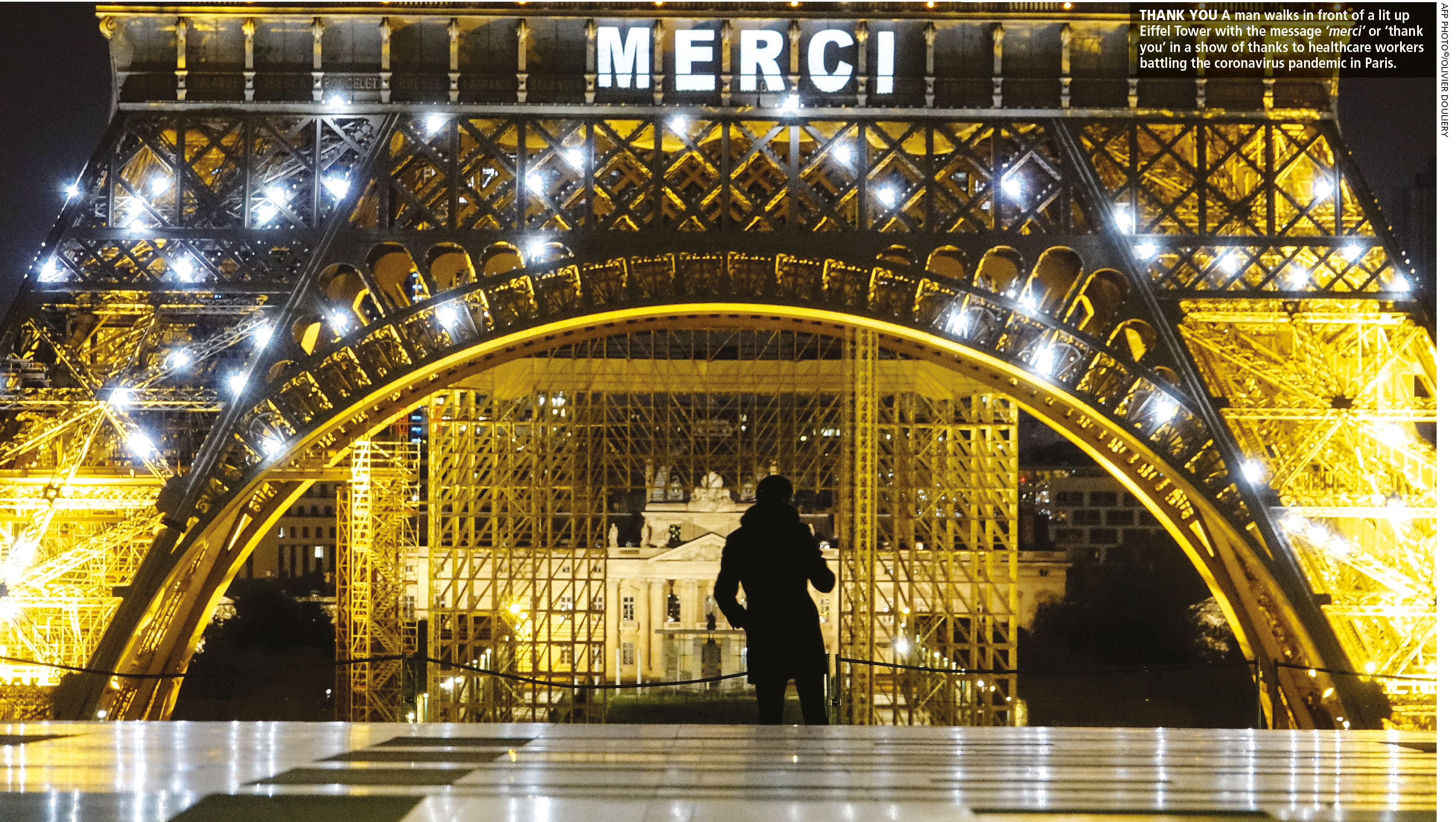NEW WORLD ORDER
BACK TO BASICS
COVID-19 has burst the bubble of consumerism andtriggered empathy for others – Rajika Jayatilake
The world was sick long before COVID-19 due to global insanity and the need to gobble up the Earth’s resources endlessly. Pioneering American environmental scientist Donella Meadows warned many years ago that “by using the Earth’s resources faster than they can be restored, and by releasing waste and pollutants faster than they can be absorbed, we have long been setting ourselves up for disaster.”
Worse still, the global population keeps growing in a world that’s insensitive to its negative environmental impact. French naval officer and conservationist Jacques Cousteau noted: “Population growth is the primary source of environmental damage.”
Inevitably consumption patterns in the world spiralled upward uncontrollably and then COVID-19 struck. Its appearance in China, in a city of 11 million people, was subtly deceptive. Even as the People’s Republic reported it to the WHO at the end of December, there was no hint of imminent danger for the world.
Yet, in a matter of weeks, people in cities and countries around the globe were falling sick one by one, toppling like a house of cards. And the sick and dying from COVID-19 has spun out of control. Even as control slipped, people stubbornly wanted to remain in their driving seats. Many young people – believing they were invincible – partied and hung out, and actively spread the infection. This has led to catastrophic consequences for many nations.
Gradually, the world slowed down with entire countries of terrified citizens in lockdown mode as physical distancing became the buzzword of the pandemic.
However, as experts understand it, the lockdown mode is temporary. Executive Director of the WHO’s Health Emergencies Programme Dr. Michael Ryan has spoken of ‘transition strategies’ to move from crisis to post-crisis.
In a world that’s changed in crucial ways, he says every country will critically require a sound public health system; substantial investments in surveillance capacity, contact tracing, isolation and quarantine measures; and powerful information capability to let people know what to do
when they fall sick.
Experts also acknowledge that deforestation, the loss of biodiversity and climate change will make the recurrence of pandemics more likely in the years ahead. Governments around the world need to have a long-term perspective in factoring in such situations as a repeat of the current reaction to a COVID-19 type situation will destabilise the world.
The EU is planning for the long term with its recent European Green Deal, which aims to make Europe the first climate neutral continent by 2050.The European Climate Law proposed by the Green Deal intends “turning political commitment into a legal obligation and a trigger for investment.”
The Club of Rome – a global nonprofit that brings together current and former heads of state, high profile politicians, diplomats, experts and business leaders – recently wrote an open letter to global leaders. It called for “investing in renewable energy instead of fossil fuels; investing in nature and reforestation; investing in sustainable food systems and regenerative agriculture; and shifting to a more local, circular and low-carbon economy.”
Regenerative agriculture focusses on drawing carbon out of the atmosphere and into the soil. This was being considered by countries even before the pandemic and may now accelerate. But whether it can reverse climate change is still a topic of debate.
This apart, the world has irreversibly changed in ways that matter. Lessons from the coronavirus are not being taken lightly. The concept of a global economy has collapsed.
Henceforth, countries will place greater faith in local producers and suppliers. Commuting to work will reduce and less vehicles on the road will curtail air pollution. On the flip side, internet access and the ability to work online will change the working world in unimaginable ways.
In fact, it is already a different world and an unrecognisable economy. In the short term, no government will be thinking in terms of profit and loss. They’re all scrambling to protect their people’s health with lockdowns or stay-at-home orders, and insisting on physical distancing while offering the unemployed money to survive.
This could mean the beginning of a more caring and engaged society reaching for improved healthcare systems, while considering universal access to healthcare and social justice.
What’s more, COVID-19 has brought forth a fresh set of heroes and given a whole new meaning to the concept of heroism. All over the world, people applauded and thanked healthcare and other workers for battling on the frontlines of the war against COVID-19. Often, they have had limited or no personal protective equipment – yet, they’ve been committed to saving lives.
A virus that doesn’t discriminate has made people conscious of their own mortality. Now they fear how history will judge them for their wanton destruction of the planet. Natural historian Sir David Attenborough once noted: “Surely we have a responsibility to leave for future generations a planet that is healthy and habitable by all species.”
We have a responsibility to leave for future generations a planet that is healthy and habitable by all species





